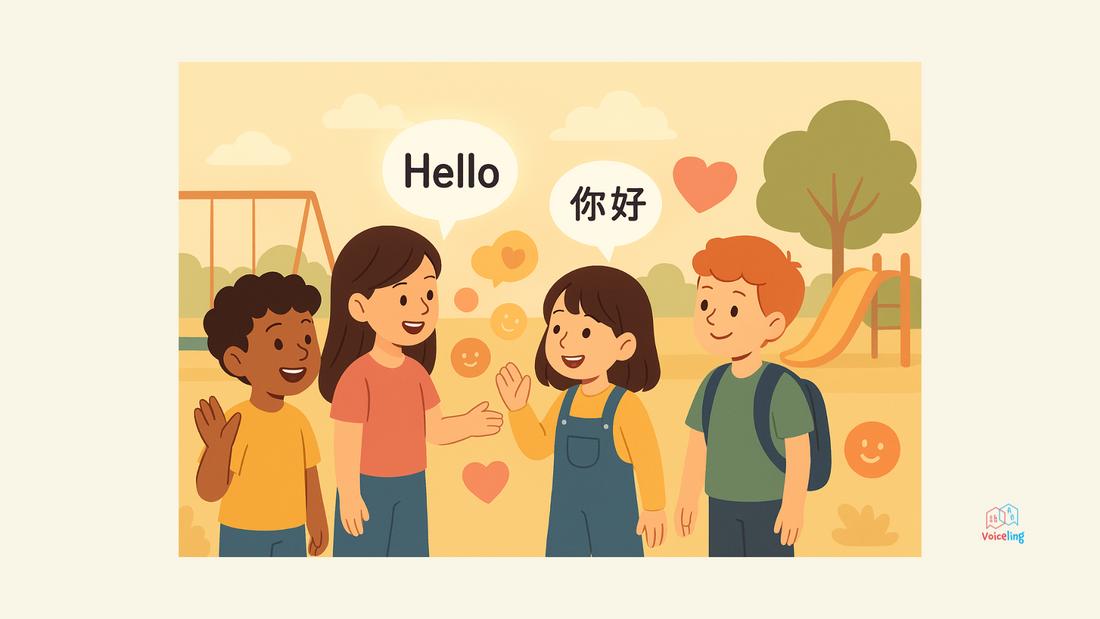
Beyond Words: Bilingual Children Are More Empathetic and Socially Aware?
Share
Being bilingual isn’t just about speaking two languages. It shapes how your child understands emotions, reads social cues, and connects with others—even before they know it.
Bilingualism boosts social awareness and empathy
Every time a child shifts languages, they must adjust to who they’re talking to, decoding context and emotions instantly. Studies show this improves the ability to understand that other people have different thoughts and feelings (Theory of Mind).
Meta-analysis showed that bilingual children often develop Theory of Mind faster than monolingual peers.
For example, in one study Romanian-Hungarian bilingual toddlers were twice as likely to pass unexpected-transfer tests compared to monolinguals.
Although, the paper doesn't tell us why, but they suggested it be link to 3 possible reasons:
- Better attention control (executive function account)
- Being aware one concept can have more than one label (metalinguistic awareness)
- Being aware different people can speak different language therefore they can equally have different thoughts. (socio-pragmatic account)
Outperforming in social tasks matters—even in tough environments
Remarkably, the social advantage of bilingualism isn’t limited to privileged settings. Even children in low-income environments show stronger Theory of Mind when they grow up bilingual—meaning bilingualism might level the social field.
In a small study, bilingual children from low-income immigrant backgrounds showed better control over conflicting information, not just abstract memory, than their monolingual peers.
Demonstrating that bilingualism builds practical social skills even under adversity
Conversational awareness goes deeper
Bilingual kids are more attuned to how language is used in conversation. In experiments testing children’s sensitivity to breaches in conversational rules (like being rude or nonsensical), bilingual children outperformed monolinguals—even when their vocabulary was similar. This suggests that bilingualism may sharpen not just language decoding, but also social nuance and understanding of polite communication.
Bilingualism softens social biases
In a small but telling study, bilingual preschoolers exhibited less implicit racial bias than monolingual peers. Bilingualism appears to broaden empathy and diminish stereotypes, helping kids see beyond borders of language and culture, even before they consciously understand it.
Minority languages matter just as much
Here’s the most important truth: the brain doesn’t play favourites. Whether your child hears Cantonese, Irish, or Navajo at home, the benefits are the same.
Bilingualism is about how the brain navigates complexity, not about how society judges the language.
What matters is that language is part of home. That’s enough to build empathy, flexibility, and confidence.
Your everyday moments help shape that advantage
You don’t need a lesson plan. You don’t need perfect grammar or fluency. You just need commitment. Every time you speak in Cantonese at home, you’re strengthening that empathy, perspective-taking, and social flexibility.
Speak. Listen. Switch. Each word adds up.
Bilingualism isn’t just about language. It’s how children learn to connect, understand, and belong across worlds.
You’re not just teaching words — you’re growing empathy.
